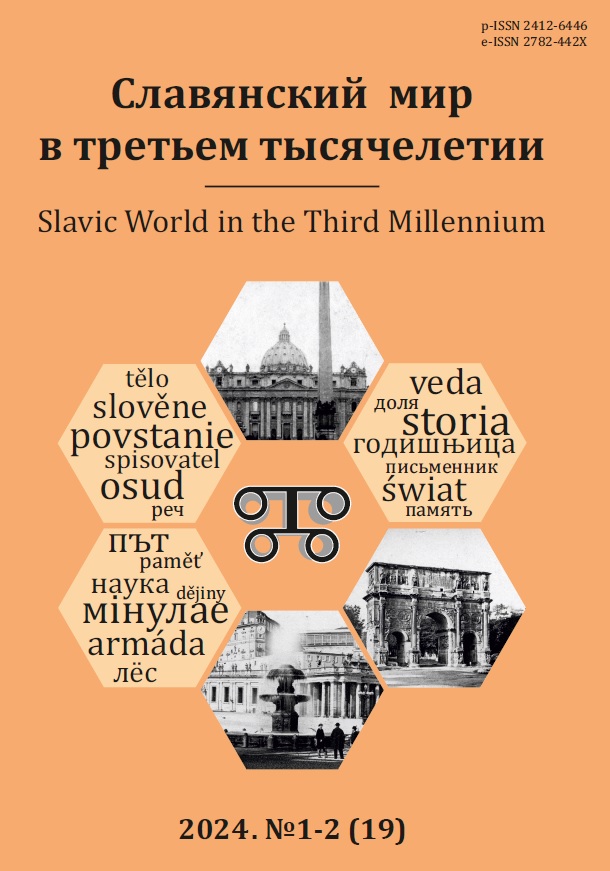The Past and Present of Slavistics in China
DOI:
https://doi.org/10.31168/2412-6446.2024.19.1-2.09Keywords:
China, Slavistics, disciplines, organizations, research directions, Harbin Normal UniversityAbstract
The origins of Slavistics in China can be traced back to 1708. However, Slavistics so far cannot be called a popular scientific field, which is manifested in a fairly small number of scientific achievements directly related to Slavistics, and in a small number of organizations specializing in Slavistics. In recent years, under the influence of international and domestic factors, especially due to the promotion and implementation of the “the Belt and Road Initiative” the number of researchers interested in Slavic studies has shown an increasing trend, and relevant research organizations have been established consistently. This article provides a brief overview of the development of Slavic studies in China, introduces leading scientific organizations, scientific events and publications. In addition, the author pays special attention to the directions and results of research at the Institute of Slavic Languages (the only research institute called “Slavic Languages” in China) and the Research Center for Slavic Nations at Harbin Normal University under the Ministry of Education of the People's Republic of China, using it as a prism to reflect the current state of Slavic studies in China. The research team of the Institute and the Center conducts both traditional and innovative research on languages, education, language consciousness, literature, folklore, and art of Slavic countries. Based on their research, we attempt to get a whole picture of the current status of the Slavic studies in China. In general, focusing on high-quality training of specialists in Slavistics and the construction of the discipline “Slavistics”, Chinese Slavists make efforts and achieve success in scientific and educational fields.
Funding
Supported by the Heilongjiang Planning Office of Philosophy and Social Science, “Research into Language Policy Changes of Slavic Countries along the Belt and Road” (20YYB019); the Fundamental Research Funds for Provincial Universities in Heilongjiang Province, “Research into the Formulation of the Theory of Embodied Cognitive Terminology by Localization”.
Received 18 February 2024
Revised 4 March 2024
Accepted 21 March 2024
For citation: Wu Zhe, 2024. The Past and Present of Slavistics in China. Slavic World in the Third Millennium, 19 (1–2), pp. 157–167. https://doi.org/10.31168/2412-6446.2024.19.1-2.09



